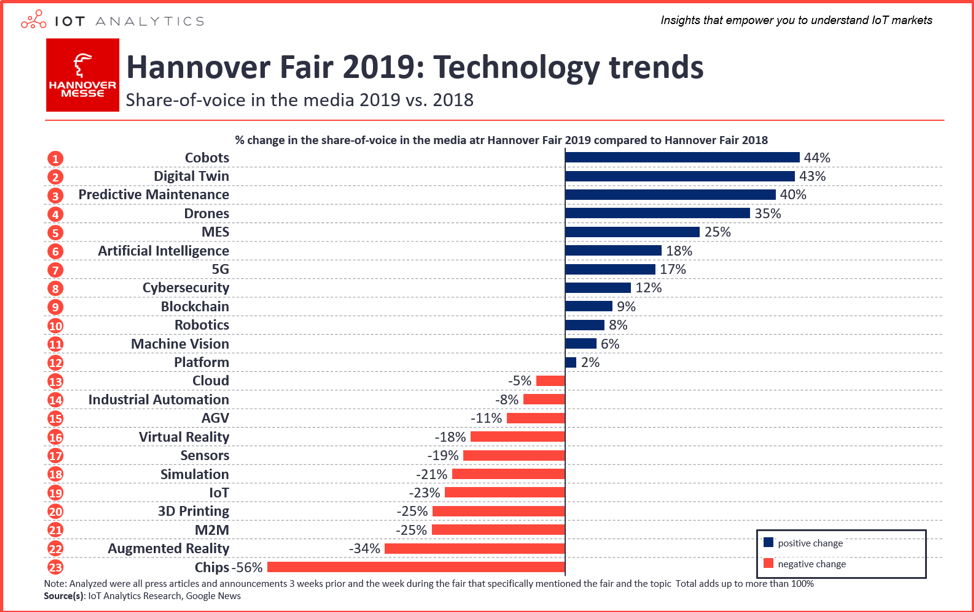Digital trailblazers and Industry 4.0 are making an impact across industries now. When it comes to the manufacturing industry, digital solutions don't have to be remote. Consider how implementing a smart factory, the principles of lean manufacturing, and continuous improvement technology can fit into your production goals. The infographic and corresponding points below, courtesy of Appian, round-up up details and statistics from studies, thinkers, industry leaders, and investors on where and how tracks are being made.
Traditional industries will be hit hard by emerging technology in 2018.
- Robotic Process Automation (RPA) will dramatically transform knowledge tasks.
- “Despite some foretellers’ projections, RPA will not cause catastrophic global unemployment, with mankind becoming idle while machines do the work. Rather, by automating low-level activities, RPA will ultimately free employees to focus on higher-value work or discover innovative ways to provide value.”
Source + read the report by KMPG. - With cloud computing expected to surge from $67B to $162B by 2020, the gap between startup and large companies will shrink faster than ever.
In 2017, Louis Columbus of Forbes wrote, “Cloud platforms are enabling new, complex business models and orchestrating more globally-based integration networks...than many analyst and advisory firms predicted. Combined with Cloud Services adoption increasing in the mid-tier and small & medium businesses (SMB), leading researchers including Forrester are adjusting their forecasts upward.”- Read Columbus’ “Roundup Of Cloud Computing Forecasts, 2017” in Forbes.
- In 2020, AI will become a net job creator, creating 2.3M jobs while only eliminating 1.8M jobs. Net job creation will vary by industry, with manufacturing experiencing the biggest impact.
Kasey Panetta wrote in October 2017 for Gartner Digital Business, “The continued evolution of digital innovation has resulted in seemingly endless options and technologies available for companies. This trend won’t end anytime soon, and IT leaders need to adjust their digital strategies to develop a reasonable pace for adoption and bimodal development.”
Read “Gartner Top Strategic Predictions for 2018 and Beyond,” by Kasey Panetta.
Global spending on digital transformation technology will surge to $1.2 trillion this year, and hit 2 trillion by 2020, according to IDC.
-
- In an IDC media release from February 2017, Eileen Smith, program director in IDC's Customer Insights & Analysis Group said, "Changing competitive landscapes and consumerism are disrupting businesses and creating an imperative to invest in digital transformation, unleashing the power of information across the enterprise and thereby improving the customer experience, operational efficiencies, and optimizing the workforce."

















